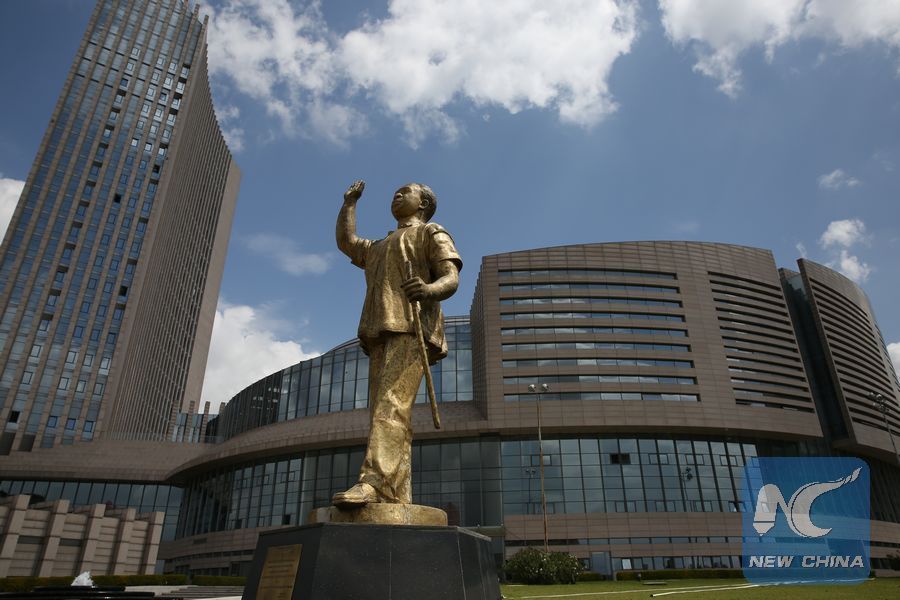
Photo taken on Jan. 29, 2016, shows buildings of the African Union (AU) Headquarters in Addis Ababa, Ethiopia. (Xinhua/Pan Siwei)
ADDIS ABABA, Jan. 25 (Xinhua) -- Africa's economy is expected to grow 3.5 percent in 2018, an increase of 0.3 percentage points from 2017, a UN official said Thursday.
Speaking at 30th AU Summit being held in Ethiopia's capital Addis Ababa, Vera Songwe, Secretary General of the UN Economic Commission for Africa (UNECA), said the growth uptick will be underpinned by strengthened external demand and moderate increase in commodity prices.
The growth will also be supported by more favorable domestic conditions including restoration of oil production in a number of countries and expected recovery in 2018 and 2019 of major economies like Egypt, Nigeria and South Africa, she said.
However, she said the growth would not be enough for the continent's rising population of more than 1 billion, 70 percent of whom are categorized in the youth group.
"Adjusting for population growth, the projected economic growth remains inadequate for Africa to make significant progress towards the Sustainable Development Goals (SDGs), the eradication of poverty and hunger," said Songwe.
"Although poverty level is reducing, it is still intolerably high at an average of 40 percent for the continent. As Such, there's need to upscale efforts at structural reforms, prudent economic management and promoting regional integration," she further said.
Nevertheless, UNECA projects the uptick in economic growth to continue for some time with 3.7 percent economic growth expected in 2019.
SDGs are a universal set of goals, targets and indicators that UN member states will be expected to use to frame their agendas and political policies until 2030.

